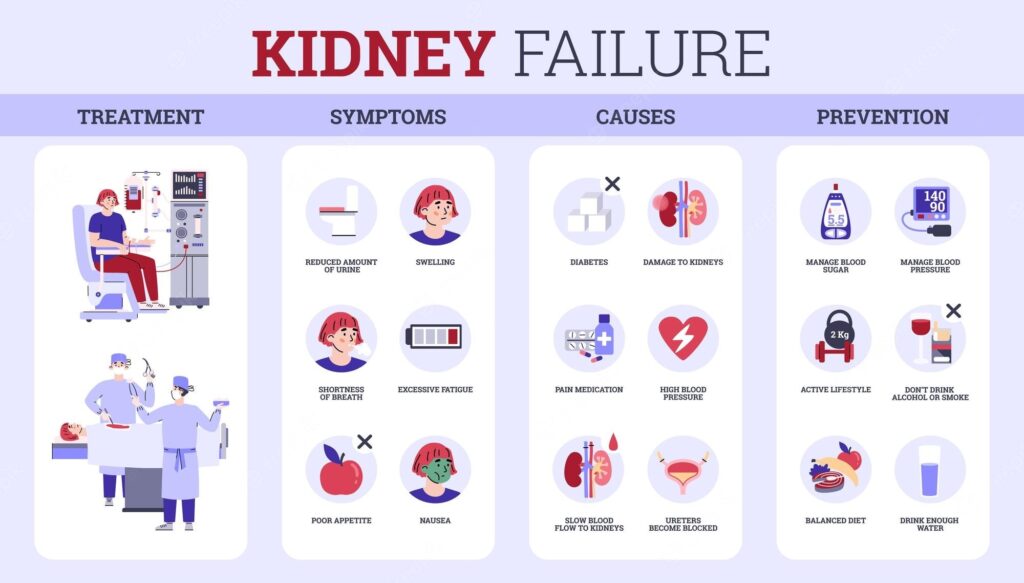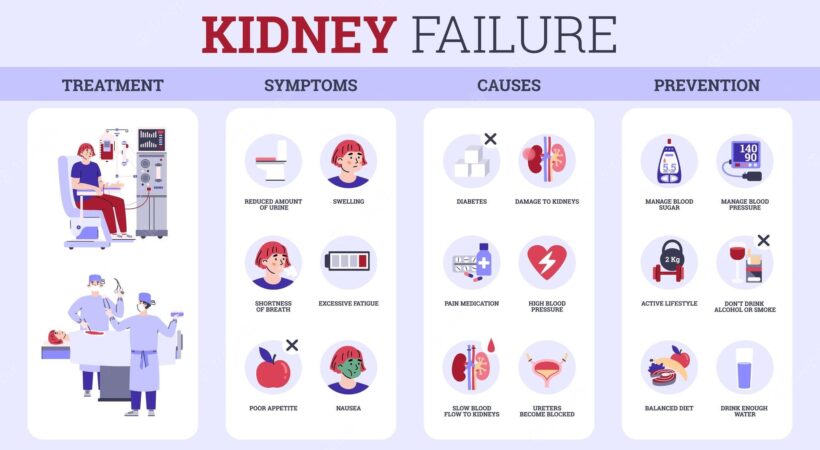
Kidney failure is the leading cause of death in adults between the ages of 45 and 64. It’s a leading cause of kidney failure in children under the age of 5 years. The more than 15 million people who suffer from kidney failure alone, it estimates to cost the average American $4,000 a year. But there’s hope for all kidney failure patients: you can help stop your kidneys from failing by preventing and treating kidney failures. Kidney failures are almost a given – with enough practice, even experienced athletes have developed ways to avoid them. In this blog post we’ll answer common questions about causes of kidney failure and ways to prevent it. We’ll discuss what you can do to avoid or cure your disease, how you can find help if you have one, and some prevention tips that may help in the future.
What is Kidney Failure?
Kidney failure is a condition in which your kidneys fail. It is a specific type of kidney disease that affects both men and women. There are two types of kidney failure – primary and secondary. While primary kidney failure results from congenital defects, secondary kidney failure can result from any cause, including weaning and medications.
Why Is Kidney Failure So Common?
The good news is that kidney failure is treatable, and it’s treatable well. You can prevent your kidney failure by getting enough exercise, following a healthy diet and staying on top of your lifestyle habits. The bad news is that it’s also common and you can get it when you least expect it. Luckily, there are ways to prevent and treat your own kidney failure. They’re not easy but they are doable.
How to Cause Kidney Failure – What Can We Do To Prevent It?
There are a few ways to prevent and treat your own kidney failure. These ways can be applied both research-based and personal. Let’s review the causes and ways to prevent, reverse, and treat your own kidney failure.
How to Find Help If You Have One
There are a number of ways to help prevent and treat your own kidney failure. And the number one way to help is to find a doctor that specializes in your type of kidney failure. This can be a difficult task, as there are so many types of kidney failure. The first thing to do is figure out which type of kidney failure you have. Next, figure out which types of treatments work best for you. You can find these in your health insurance plan or at a doctor’s office.
Preventing Kidney Failings Through Diet and Exercise
If you’re trying to prevent your own kidney failure, you should aim to consume foods that contain dietary fiber. Fiber is essential for your health and well-being, but especially so if you have diabetes or a heart condition. Fiber is found in fruits, vegetables, whole grains, legumes, and nuts. When you have a fiber problem, your body breaks down fiber into simpler, tastier forms that are easier to digest. This is one of the main ways your body helps prevent and treat your own kidney failure.
Other Ways to Avoid or Cure Kidney Diseases
There are a number of ways to prevent and treat your own kidney diseases. These include: Having heart surgery after a heart attack or incident; Having an emergency operation for an illness; Engaging in strenuous activities that break your body down, like weight lifting or dancing; Having a child who has a brain or other inherited diseases; Having a co-worker or trusted friend who has a kidney disease; Having had cancer surgery or had your teeth removed; Having taken any medications, including opiods or prescription antidepressants, while developing a kidney disease; or Having been to a hospital or other medical center as part of an ongoing kidney disease.
Conclusion
The good news is that it’s possible to prevent and treat your own kidney failure. It’s just a matter of finding the right person and doing your personal part. You can prevent your own kidney failure by following these steps: Get a vitamin B2 or B3 supplement every week. Keep your diet heavy in fruits and vegetables. Limit your alcohol intake. Take care of your body and your environment by staying fit and eating healthy. And don’t forget to talk with a doctor about your medical condition if you’re having trouble making weight.
